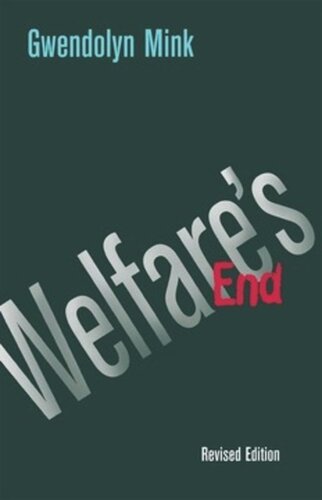

Most ebook files are in PDF format, so you can easily read them using various software such as Foxit Reader or directly on the Google Chrome browser.
Some ebook files are released by publishers in other formats such as .awz, .mobi, .epub, .fb2, etc. You may need to install specific software to read these formats on mobile/PC, such as Calibre.
Please read the tutorial at this link: https://ebookbell.com/faq
We offer FREE conversion to the popular formats you request; however, this may take some time. Therefore, right after payment, please email us, and we will try to provide the service as quickly as possible.
For some exceptional file formats or broken links (if any), please refrain from opening any disputes. Instead, email us first, and we will try to assist within a maximum of 6 hours.
EbookBell Team

4.7
66 reviewsWith her analysis of the thirty-year campaign to reform and ultimately to end welfare, Gwendolyn Mink levels a searing indictment of anti-welfare politicians'assault on poor mothers. She charges that the basic elements of the new welfare policy subordinate poor single mothers in a separate system of law. Mink points to the racial, class, and gender biases of both liberals and conservatives to explain the odd but sturdy consensus behind welfare reforms that force the poor single mother to relinquish basic rights and compel her to find economic security in work outside the home.
Mink explores how and why we should cure the unique inequality of poor single mothers by reorienting the emphasis of welfare policy away from regulating mothers to rewarding the work they do. Every mother is a working mother, the bumper sticker proclaims, but the work mothers do pays no wages. Mink argues that women's equality depends on economic support for caregivers'work.
Welfare's End challenges the ways in which policymakers define the problem they seek to cure. While legislators assume that something is wrong with poor single mothers, Mink insists that something is wrong with a system that invades their rights and negates their work. Showing how welfare reform harms women, Mink invites the design of policies to promote gender justice.